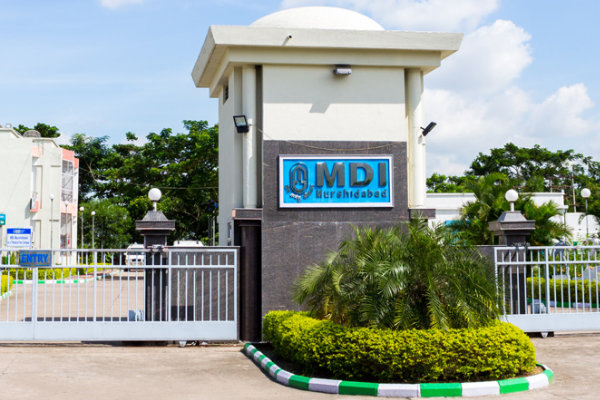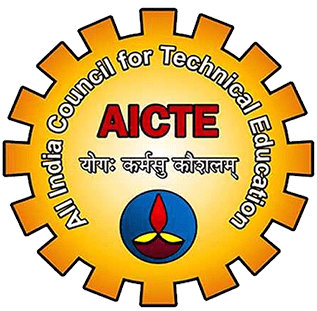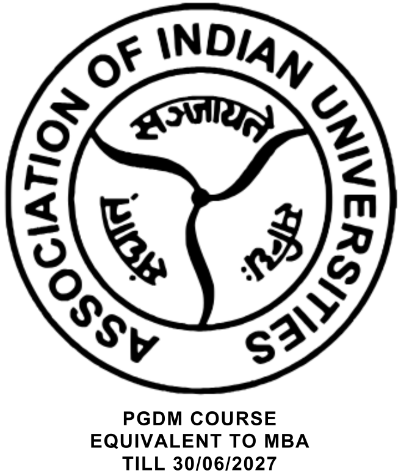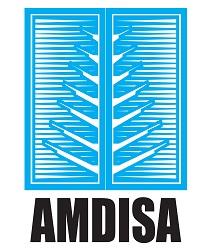ICBIT 2020

THE LAST DATE OF REGISTRATION FOR ICBIT IS 20/09/2020
International Conference on Business, IT, and Enterprise Architecture
ICBIT 2020
(Resurgence of Business and Economy-Post Covid-19)
25th & 26th September, 2020 in online mode
25th & 26th September, 2020 in online mode
About the conference
Digital transformation is the reimaging of business with digital technology at its core serving both as an enabler and a strategic driver. Digitization profoundly impacts our society and economy and the way we live, work, learn, communicate, collaborate, and decide. New business opportunities are being created by leveraging the Internet and related digital technologies, such as the Internet of Things, cloud computing, services computing, artificial intelligence, machine learning, big data analytics, mobile platforms, and collaborative networks. Enterprises are transforming their strategy, culture, processes, and their information systems to become more digital. The digital transformation deeply disrupts existing enterprises and economies and sets the base for new digital services and digitized products.
Digitization fosters the development of IT environments with small and distributed structures, for instance, the Internet of Things. This has a strong impact on the process of architecting digital services and products, which includes both technological and business aspects. The change from a closed-world modelling perspective to more flexible open-world and living software and system architecture defines the moving context for adaptable, evolutionary, and resilient service-oriented software approaches, which are essential to enable the digital transformation of business, society, technologies, and information systems.
One of the largest digitalization initiatives in the world is Digital India, which aims to transform India into a digitally empowered society and knowledge economy. The NITI Aayog has set a target of US$ 1 Trillion by 2025 for the digital economy in India. Transformation of this scale and complexity needs to be orchestrated and architected. The role of enterprise architecture in making this happen cannot be overemphasized. In realizing the criticality, the Ministry of Electronics and Information Technology has taken the lead to develop a national framework for enterprise architecture called the India Enterprise Architecture Framework.
In this fast-paced era, the organization leaders need to rely on innovation to understand customers and embrace disruptive information technologies. This requires an holistic thinking and a deep understanding of how all the seemingly disparate dimensions come together to provide sustained differentiation and competitive edge. Competing on processes and products is outdated. Organizations today, are creating digital platforms and building ecosystems anchored around such platforms. Platform-enabled ecosystems are making new business models possible and accelerating network effects by creating value and participation. The pace of digitalization in India has been exponentially increasing since 2010, especially after the demonetization phase. In HR, Marketing, Operations, and Finance, digitalization has had a remarkable impact. It helps the customer in providing goods & services on time. It helps businesses in getting competent by recruiting the right manpower, measuring the responsibility and accountability in the activity chain, increasing business revenue, leading brand promotion campaigns with better and wider visibility, forecast sales, understand customer’s lifetime value, price, competitor’s strategy, plant capacity upgradation, and layout designing. But digitization of businesses also faces challenges from various stakeholders. The pros and cons of the digitalization are debatable. However, by adapting ourselves to digitalization, if the world productivity increases with a sustainable model for development, the change is most welcome.
There is clearly a need for greater understanding of current and emerging trends, the opportunities that are being created constantly and the challenges faced in taking full advantage of such opportunities.
The corona pandemic has changed the business landscape considerably, further enhancing the scope of digitization. As more organizations are opting for ‘Work from Home’ for their employees, educational institutions are opting for online classes for their students. There is a significant change in the marketplace as well, as people’s movements are restricted. As a result, more and more people are opting for digital marketplaces and digital payment options.
The ICBIT 2020 conference will foster the multidisciplinary discussion about Digitalization and Business Management from both the scientific and practitioner perspectives, and its impact on current enterprises. Our goal is to inspire researchers to share theoretical and practical knowledge of different aspects related to Digitalization, Data Science, and Security, and Businesses.
Call for Papers:
| Broad tracks (Indicative List) but not be limited to | ||
Track – Enterprise Architecture and Information Management in Digital Era
|
Track – Finance in Digital Era
Track- Marketing in Digital Era
Track- Operations in Digital Era
Track- Business Innovation in post COVID period
|
Track- Human Resource & OB in Digital Era
Track- Cases
|
There will be two edited books, one with selected research papers and the other one with selected case studies to be published by a reputed publisher*. All accepted papers will be published as part of conference proceedings in ebook form (with ISBN).
*Springer has expressed interest in publishing selected papers from the conference (after rigorous review by conference editorial board) in the form of an edited volume, subjected to Springer’s review process.
For further details you may contact
ICBIT 2020 Email Id: icbit@mdim.ac.in
Dr. Bikramjit Pal, bikramjit.pal@mdim.ac.in
Dr. Souvik Banerjee, souvik.banerjee@mdim.ac.in
Paper Submission Guidelines
Submit your paper to icbit@mdim.ac.in
All submitted papers should articulate original, unpublished research results, experimental or theoretical. Papers submitted to the Conference should meet these criteria and must not be under consideration for publication elsewhere. Manuscripts must follow the style of the Conference and will undergo both peer review and editing. All ‘others work’ you have included in your paper must incorporate in-text citation.
Kindly mention the track name in the subject line while submitting the research paper.
Submission Format
Manuscript Format
- MS Word, single-spaced
- Font: Times New Roman, 12 point
- Text should be justified, except for the article title and block quotations
- Quotations longer than four lines should appear as blocked quotations, singled-spaced, italicized and indented six spaces from the left hand margin.
- Subheadings should be bolded and placed at the left hand margin, one double space below the previous section.
- Word limit: 8000 words (maximum) including endnotes, all figures, tables, References and appendixes
- Tables or charts must be in MS Excel compatible format
- Tables, charts or images may be inserted in the text document
- Electronic images must be 300 dpi resolutions if they are to be included at full size and reference
- Bibliographic References must appear at the end of the manuscript, NOT as footnotes on each page;
- Endnotes must be single-spaced, with one double space between each note
Reference Style
The reference list should appear at the end of your paper. Please include references of all materials you have cited in your paper. Harvard-style referencing should be used throughout the paper. That is, author(s) last name, first name(s) and year of publication, followed by the source and the publisher. References should be listed in alphabetical order and all lines other than the first line should be indented.
Submission Deadline
The last date of submission of extended abstract is 20th August, 2020.
Notification of extended abstract submission will be subjected to conference committee decision.
Last date of submission of full paper is 20th September, 2020.
Please note that you can attend the conference with the submission of abstract only. Authors who wish to get their research paper/case study published in the edited books, need to submit their full research paper/case study
Review Process
All manuscripts are subject to review and are expected to meet standards of academic excellence. Manuscripts will be reviewed by peer-reviewers, whose identities will remain anonymous to the authors.
Based on the reviewer’s comments, the organizing committee will take one of the following decisions:
- Accept without revisions
- Accept with minor revision
- Accept with major revision
- Non acceptance
Registration
Registration Fee
| Type of delegate | Indian (INR)* (Including SAARC Countries) | Foreign (USD)* |
| Corporate | 1,000 | 15 |
| Academician | 500 | 8 |
| Research Scholar/ Student / Delegates | 250 | 4 |
| * +18% GST extra | ||
Registration Details
Download the registration form and send it with the payment receipt once you got the paper acceptance mail.
Click here to download the registration form.
Bank Details
A/c Name – Management Development Institute Murshidabad
Bank – State Bank of India
A/c No. – 33987582978
IFSC – SBIN0012355
Important Dates
Date of the Conference: 25th and 26th September 2020
Abstract Submission Deadline: 20th August 2020
Notification of Paper Acceptance: 25th August 2020
Registration Window Opens: 25th August 2020
Full Papers Submission Deadline: 20th September 2020
Mode of Conference
The conference will be conducted in online mode.
Organizing Committee
Patron
- Prof. (Dr.) Atmanand, Director, MDI Murshidabad
Organizing Committee
- Dr. Bikramjit Pal, Conference Chair
- Dr. Souvik Banerjee, Conference Chair
Keynote Speaker
Prof. (Dr.) Jyotsna Kumar Mandal Professor in Computer Science and Engineering, University of Kalyani, India. Former Dean Faculty of Engineering, Technology & Management 2008-2012 (two consecutive terms), 32 years of teaching and research experiences. Topic: Cloud Computing and Security Issues |
Dr. Sanjit Kumar Roy Dr. Sanjit Kumar Roy is an Associate Professor of Marketing at UWA Business School, The University of Western Australia. He is a Fellow at the Centre for Business Data Analytics at UWA Business School. He is a certified LEGO® SERIOUS PLAY® Facilitator. He is an Associate Editor at European Journal of Marketing and on the editorial boards of Journal of Business Research, Journal of Services Marketing, Journal of Service Theory & Practice and Journal of Strategic Marketing. He is Guest Editing special issues for Journal of Marketing Management and International Journal of Information Management. His research interests include Marketing of Services, Impact of New Technology on Marketing, and Transformative Service Research. He has published in journals including European Journal of Marketing, Journal of Business Research, Journal of Marketing Management, Internet Research, Information Systems Frontiers, International Journal of Information Management, Journal of Services Marketing, and Journal of Service Theory & Practice among others. He also co-edited three case books published by Springer (1) Marketing Cases for Emerging Markets; (2) Services Marketing Cases in Emerging Markets – An Asian Perspective; and (3) Strategic Marketing Cases in Emerging Markets. He was a visiting scholar at Bentley University (USA) and visiting research fellow at Middlesex University (UK). He was awarded UWA’s Vice Chancellor’s Early Career Investigators Award 2015 and selected in UWA’s Emerging Research Leader programme in 2018. Topic: Service Encounters in Post-Covid Times |
Dr. Shivam Gupta Dr. Shivam Gupta is an Associate Professor at NEOMA Business School, France with a demonstrated history of working in the higher education industry. Skilled in Statistics, Cloud Computing, Big Data Analytics, Artificial Intelligence and Sustainability. He has previously worked at Montpellier Business School, France and has a strong educational background with a PhD focused in Cloud Computing and Operations Management from Indian Institute of Technology (IIT) Kanpur. Followed by PhD, postdoctoral research was pursued at Freie Universität Berlin and SUSTech, China. He has completed HDR from University of Montpellier, France. He has been the recipient of the International Young Scientist Award by the National Natural Science Foundation of China (NSFC) in 2017 and winner of the 2017 Emerald South Asia LIS award. He has published several research papers in reputed journals like International Journal of Information Management, Information Systems Frontiers, International Journal of Production Economics, Journal of Business Research, Annals of Operations Research, International Journal of Production Research, IEEE Transactions on Cloud Computing, Technological Forecasting and Social Change, Industrial Marketing Management, Production Planning & Control and many more. His specialization domains are Industry 4.0, Big Data Analytics, Artificial Intelligence, Blockchain, Circular Economy, Sustainability Topic: Role of Quantum Computing in the Healthcare Sector Post Covid-19 |
Dr. Siba Kumar Udgata Dr. Siba K Udgata is a Professor in the School of Computer and Information Sciences, University of Hyderabad (Institute of Eminence). He served Centre for Modeling, Simulation and Design (CMSD) as a Director from 2012 to 2016. He is an alumnus of Berhampur University. He was a United Nations Fellow and worked in the United Nations University/ International Institute for Software Technology (UNU/IIST), Macau as research fellow in the year 2001. His research focus is on intelligent algorithms for wireless communication, mobile computing, sensor network and applications. He has worked as principal investigator in many funded research projects (funding of Rs. 4.5 cores approximately) in collaboration with Stanford University, University of California, IIT Delhi, and few others. He has published research papers extensively in many peer reviewed international journals and conferences. Topic: Business Intelligence – Artificial Intelligence Empowered Business Functions |
Recording Links
| Day-1: | https://www.youtube.com/watch?v=Pfop-nbF1Vk |
| https://www.youtube.com/watch?v=Kt16NRc24h8 | |
| Day-2: | https://www.youtube.com/watch?v=U9Jpvq59VBQ |






